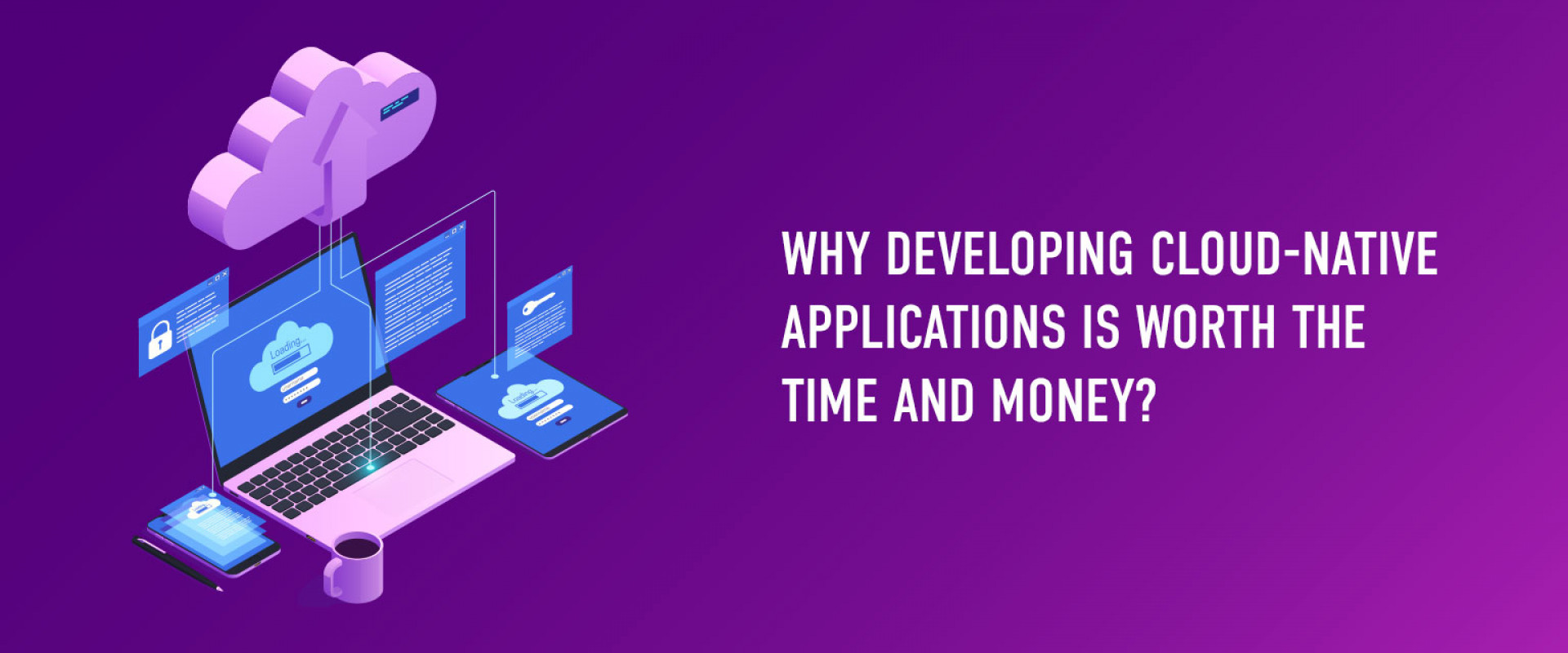3 Reasons for the Mounting Demand for Smart Cloud-Native Application Development

The demand for smart cloud-native applications rises as businesses realize that cloud-native application development helps them become agile.
“Business agility, scalability, and flexibility are critical to succeeding in the contemporary digital environment. With cloud-native application development, companies can attain all these success parameters.”
Cloud-based solutions ensured connectivity, accessibility, availability, and business continuity when the COVID-19 crisis forced companies to build remote working models. Gradually, as companies started to realize the benefits of technological advancements, including Microservices, APIs (Application Programming Interfaces), Kubernetes containerization, and server-less architecture, the demand for cloud-native application development mounted simultaneously.
Seeking cloud-native application development means moving from the traditional monolithic business architecture to a more flexible and agile architecture, which reduces infrastructure complexities and shapes an instant response to changing market demands.
In the current circumstances where data breaches are on the rise, a cloud-native environment allows businesses to build reliable systems that help deal with cyber threats efficiently and minimize risks. In recent years, a significant increase in cloud-native developers has been found. These developers help companies create systems and platforms which enable them to keep pace with the digital age. However, cloud-native applications have enormous benefits; the three most important benefits are.
1. Reduce Operational Costs
Cloud creates a perfect environment to create applications once, make changes whenever required, and deploy rapidly. With technologies and cultures such as automation and DevOps, companies can automate processes and ensure CI/CD (Continuous Integration and Continuous Delivery), enabling companies to build new products and services and deliver them at speed and accuracy.
Another factor that helps companies use the cloud-native application to cut operational costs is that it allows them to use Microservices architecture, which is another efficient way to connect with applications individually and without compromising other applications in case of a breakdown. APIs (Application Programming Interfaces) act as the common language and helps flawless communication of one application to another in a secure environment.
2. Infrastructure Management Convenience
Cloud-native applications are best known for their capability to fasten all the processes involved in application development, including designing, creating, hosting, and implementing. Smart cloud-native applications allow companies to be born, reside, and grow in the cloud. It saves you from the complexities of software and hardware configuration as it has none.
Traditional infrastructure is difficult to maintain and offers little to no flexibility. But cloud-native apps keep you free and help to set up businesses immediately and make Thebes of the public, private, and hybrid cloud environment. It works on internet-based servers and offers better collaboration between the teams involved in software development. Cloud-native applications trigger productivity, simplify IT, and support building a resilient business architecture.
3. Enhance Customer Experience and Accelerate Innovation
Cloud-native applications are a great way to enhance customer experience and practice continuous innovation. Cloud-native uses containerization, which mitigates risks concerning data breaches. Therefore, it offers customers maximum security and satisfaction as it protects their data. Even if one component of an app is compromised, other parts work just fine, whereas the compromised component is quickly reinstated.
Cloud-native apps create an environment that allows companies to respond to market demands. Businesses can leverage data in the cloud to develop products and services that help focus on customer-centric experiences. It is easy for companies to use cloud-native applications as they help update and upgrade software and applications following customers’ demands within a shorter span.
Smart Cloud-Native Applications Will Gain Demand for Years to Come
Said to be the future of software development, intelligent cloud-native applications are in high demand, and the rising trend seems to continue. As GlobeNewswire informs, the market for global cloud-native storage is to grow at a CAGR (Compound Annual Growth Rate) of 22.3% in the next six years to reach $41.9 Billion in value. Software built in the cloud and for the cloud with the ability to use native features and capabilities of devices is what cloud-native applications mean. This is an innovative approach to creating, designing, implementing, and running software applications.
We ZippyOPS, Provide consulting, implementation, and management services on DevOps, DevSecOps, Cloud, Automated Ops, Microservices, Infrastructure, and Security
Services offered by us: https://www.zippyops.com/services
Our Products: https://www.zippyops.com/products
Our Solutions: https://www.zippyops.com/solutions
For Demo, videos check out YouTube Playlist: https://www.youtube.com/watch?v=4FYvPooN_Tg&list=PLCJ3JpanNyCfXlHahZhYgJH9-rV6ouPro
Relevant Blogs:
DevOps Orchestration: Looking Beyond Automation
Securing Developer Tools: Argument Injection in Visual Studio Code
Common Mistakes in DevOps Metrics
Microservices Deployment Patterns
Recent Comments
No comments
Leave a Comment
We will be happy to hear what you think about this post